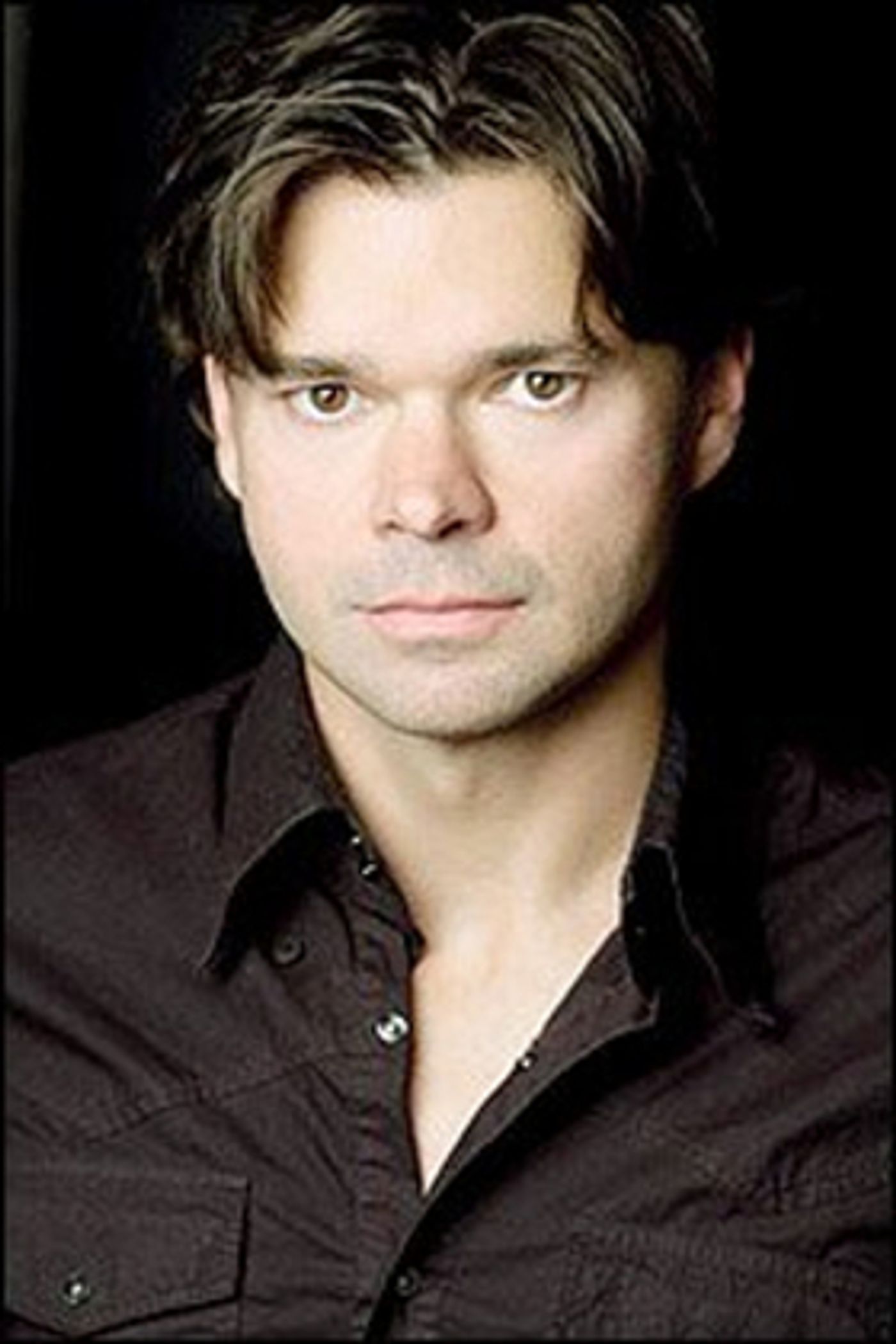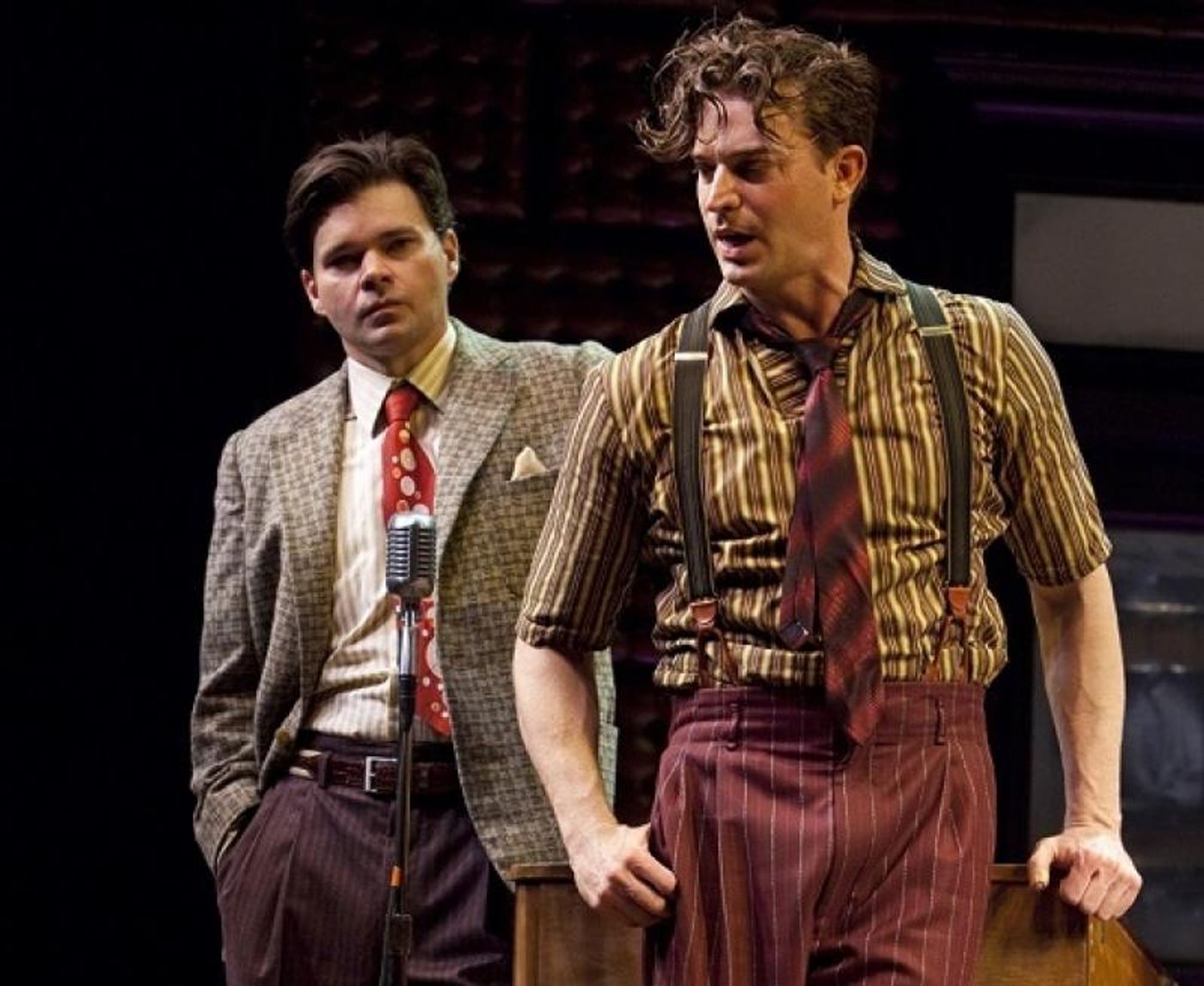Interview: Telling a Great Story: A Conversation with Hunter Foster

"When I was growing up, I wanted to be a writer, a novelist, and that's what eventually drew me into acting and then directing and writing for the stage. It was always about storytelling." Hunter Foster is reminiscing about the aspirations that led him to seek a life in the theatre. The award-winning actor, director, writer is taking a short break from rehearsal at Maine State Music Theatre, where he is about to open his twelfth production of Million Dollar Quartet on June 7th.
Raised in Augusta, Georgia, Foster recalls that, despite the fact that his sister Sutton Foster also chose the stage as her profession, "there was nothing in my upbringing that really pointed me in that direction." But somehow, that storytelling impulse kicked in at an early age. Foster recounts an anecdote about the time he was in third grade. "For some inexplicable reason I decided I wanted to write a play and to direct and star in it. It was four pages long, written on both sides, and it was about Dracula. I, of course played Dracula, and we performed it for my class," he smiles.
When he was about fourteen, Foster began to take acting classes and to work in community theatre, and after high school graduation he attended the University of Michigan, Ann Arbor and received his degree in musical theatre. Moving to New York, he found work on the national tour of Cats as Rum Tum Tigger and went on to create a string of roles on and off Broadway that included, Danny Zuko in the revival of Grease, Jonathan in King David, Joly in Les Misérables, and Bickle in Footloose. But it was the surprise hit of 2001, Urinetown, which became a real breakthrough for Foster.
"There were so many things that came together in doing that show," he recalls. It had been this little off Broadway cult show that no one thought would ever make it big; then suddenly it moved to Broadway and won four Tony awards and a slew of other honors. We opened one week after 9/11, and we received some of the longest reviews ever because the critics were back at their jobs, writing again, and they talked about 9/11 as well as our play."
Since then Foster has starred in a wide range of repertoire such as like Little Shop of Horrors, The Bridges of Madison County, and the original Broadway production of Million Dollar Quartet in which he played Sam Phillips. He cites one of his favorite shows as Hands on a Hardbody, a quirky story about contestants vying to win a truck, written by the lead singer of the band Fish. "I like the unusual," he explains.
Becoming a director organically grew out of Foster's writing and acting. Among the works he has penned and had produced are Jasper in Deadland, Clyde and Bonnie, and Summer of 42. The last of these was being staged at the Bucks County Playhouse in 2013 when schedule director Lonnie Price pulled out. "I was asked to come in and take over, "Foster recalls, "and I have been associated with the Playhouse now since that time as an Artistic Associate and its resident director. I will be doing three shows there this year: Forty-Second Street, the Rocky Horror Show, and Million Dollar Quartet.
And so Hunter Foster will add yet another production of MDQ to his already long roster. Asked what constitutes the enduring appeal of this show for him, he replies without hesitation: "It is a special show because the level of talent that it requires - musical theatre performers who are also excellent musicians - so I get to work with a group of really great people each time. Most of us have worked on the show together before and become friends, so it is a joy when we reconvene. Then, too, I never get tired of this music. And I keep tinkering with the show each time, trying to discover new things. But what is great is that I do know it so well, that I can parachute in and get right to work without too much stress."
Foster does note however, that knowing a show as intimately and extensively as he does Million Dollar Quartecan also present some added challenges. "Sometimes it is harder to unthink what you already know than it is to start with a clean canvas. Here I have a canvas already painted, and I have to adjust the painting, which can be tricky."
Foster talks about the way his thinking about Million Dollar Quartet has evolved in the eight years since he first played the key role of Sam Phillips in the Broadway production in 2010. "The original production was in one act, and it was first at Ogunquit that I reworked it into a two-act version. That meant I had to develop so that we could take a break, come back, restart and move to the finale. I knew it needed some additional songs, and we had to be careful about royalty costs, but luckily Rockin' Robin and the gospel song we added in the middle were in the public domain. The concert at the end of the show has always been a big finish, but along the way, I have worked on adding some lines from old scripts that help develop the drama and characters more fully. You will see that here at MSMT."
Creating strong characterizations is one of Foster's chief goals a director. In Million Dollar Quartet, where the four actors play famous musicians, he says he was intent that "no one plays his role as a caricature. The biggest trap is always Elvis because everyone has his own memory of Elvis at different stages of his career. I tell the cast that they have to start from their own truths as actors, and then we will layer some things on top of that, but they have to be real people. Sometimes we get comments that the actors are not exactly like the historical figures they portray. But that doesn't matter. What matters is that the audience believes they are those people."

Foster recalls his own experience playing Sam Phillips. "He was a really interesting figure in the history of popular music. He was a pioneer who essentially discovered rock and roll. He created the sound and nurtured the artists, and he was an amazingly progressive man, given that he owned a studio in Memphis at a time when race relations were explosive. Sam liked and supported black artists and treated them equally, and he saw in Elvis a white musician with a black sound."
Foster says when he begins the directorial process for a new production of Million Dollar Quartet, he not only stresses the characters' individual stories, but he also emphasizes the need for them to be an ensemble. "Everyone has to be on the same page, in the same tone, and work as a unit. And it is important that when they set foot on stage they have to play for life and death stakes. They have to walk on stage each night and create heightened drama, and they have to play as if they do not know how the show will end. To keep the show fresh, everything has to feel new each time, and the play has to carry you along to its ending - which in the case of Million Dollar Quartet is a glorious rock concert that inevitably blows audiences away each time.
So if Hunter Foster follows his own advice about keeping it new and fresh, what does he hope for when Million Dollar Quartet officially opens MSMT's Diamond Jubilee season on Thursday? " I know the audience will LOVE the music and that this is the perfect show to celebrate a big anniversary. But I also want the experience to go beyond the amazing music. I want the audience to be affected by the drama. I want them to say 'Wow! That was so emotional. What a great story!'"
Photos courtesy MSMT Kinectiv, photographer
Hunter Foster's upcoming directorial projects include: Our Town (Theatre Aspen), Forty-Second Street (Bucks County Playhouse, Clue (Cape Playhouse), and Drowsy Chaperone (Goodspeed Opera House) www.hunterfosterofficial.com
Videos

